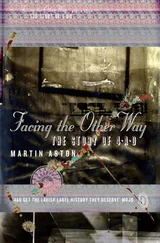“In normal circumstances,” said Selena, “I would be quite willing to oblige you by dawdling along at any speed you found comfortable — say five miles an hour or so. You will perhaps recall, however, that I am hoping to catch a plane to Athens this evening, with a view to sailing round the Ionian Islands. The crew — namely Sebastian — has been instructed to report promptly for duty at 17:00 local time — or, as you landsmen would say, five o’clock this afternoon. To arrive late might seriously impair the authority of the skipper — namely mine — for the duration of the voyage.”
I perceived in her manner the blithe insouciance of a woman who had cast aside the responsibilities of practice at the Chancery Bar: it was as if she already breathed the salt Ionian air and her hand rested not on the steering-wheel of her car but on the tiller of some graceful sailing craft, cutting swiftly through the blue water. Knowing that in such a mood there could be no reasoning with her, I adopted the policy previously mentioned of keeping my eyes closed.
“I’m very sorry,” said Julia. “I’m afraid it’s my fault. I’ll explain to Sebastian, if we’re late, that it’s due to my embroiling you in a criminal investigation.”
I had not told them, I now realized, that our investigation was concluded, and that no crime had been committed. I thought it prudent to delay this disclosure until Selena had completed her negotiation of the streams of traffic moving rapidly round Hammersmith roundabout.
“We have been told,” I said, “that Rupert’s insult to Constantine Demetriou — that is to say, the Greek gigolo remark which resulted in Dolly being called down from the roof terrace — was uttered at the moment when the boats first came into view from the balcony. Between then and the moment at which Deirdre is known to have fallen we have supposed that a resolute person would have had time to ascend unobserved to the roof terrace and make a murderous attack on Deirdre.”
“The timing,” said Selena, “seemed fine but not impossible.”
“Quite so, if we had been right in assuming that the boats would have come into view when they passed Chiswick Steps. But the fact is that it is quite impossible from Rupert’s balcony to see anything like so far as that. The front of the building is at a slight angle to the river bank: the view upstream is admirable, but downstream, as Ragwort rightly remarked, it is very poor — one can see no farther than three or four hundred yards below Barnes Bridge. That is about a quarter of the distance to Chiswick Steps — the Boat Race crews would take, I suppose, no more than a minute to cover it. Which leaves, you see, no time at all for any attack on Deirdre. No one could have gone up to the roof before she fell without meeting Dolly on the way down from it. Indeed—”
“You were,” said Ragwort, “about to say?”
“I was about to say,” I said, “that very little time can have passed between the moment at which Dolly left the roof terrace and Deirdre either fell or jumped from it. Almost no time at all.”
“You surely aren’t suggesting,” said Ragwort, “that Dolly herself—? Oh nonsense, Hilary, she’s a simply delightful woman.”
“She is indeed,” I said, “a most charming and attractive woman. The study of history, however, demonstrates that charming and attractive women are not incapable of murder. You do see, don’t you, that if murder was committed she is the only person who had time to do it? On Boat Race Day, remember, and at so crucial a point in the contest, there would have been a considerable commotion on the towpath: it would have taken a minute or so for those watching from the balcony to become aware of anything amiss. If she had thrown her niece over the parapet and immediately descended to the drawing-room, I dare say they would all have believed that she was already downstairs when Deirdre fell.”
“Hilary,” said Selena, “you aren’t serious about this, are you?”
“No,” I said. “No, as it happens, I am not. I agree that she couldn’t have done it — she isn’t tall enough.”
“And a study of history demonstrates, I suppose,” said Ragwort, “that women of short stature are incapable of murder?”
“The commonplace experience of lifting a suitcase into a luggage-rack demonstrates the muscular effort required to raise a heavy object above one’s head. If Dolly had ever trained as a weight-lifter, it is conceivable that she might be able to lift a young woman of similar height and weight to herself over a barrier some two inches taller; otherwise not — I am satisfied that the possibility may be excluded.”
We continued eastwards in silence. It was not until we reached Trafalgar Square, where buses, pigeons and wandering tourists, all equally indifferent to impatient toots of the horn, reduced our speed to that of an unhurried pedestrian, that Selena spoke again.
“I’m glad,” she said, “that there’s no question of murder. It means we can stop being anxious about Camilla.”
Unaware that we had begun to be anxious about Camilla, I invited her to explain her meaning.
“Well, you’ve always said, Hilary, that you didn’t think it was murder because the wrong girl was dead.”
“Yes,” I said. “I have always taken the view that if a murder were to take place in the Remington-Fiske family it would be the heiress who was murdered.”
“And it’s quite true, of course,” continued Selena, as she edged her way forward into the Strand, “that if anyone else in the family had wanted to inherit the estate, they would have had to dispose of Camilla. But Deirdre was the next in line of inheritance, so she was the only one for whom that would have been enough. Anyone else would have had to get rid of both of them. And there’s no particular reason, is there, why they should do so in order of seniority?”
The crew after all arrived before the captain. We found my young colleague Sebastian Verity sitting in Selena’s room in 62 New Square, peacefully reading a copy of Homer’s Odyssey —a graceful young man, gray-eyed and silken-haired, of agreeably poetic appearance. His name will perhaps be known to my readers — though the work has not reached so extensive an audience, even among the discerning, as its artistic and scholarly merits would deserve — for his verse translation of the Idylls of Theocritus, published some fifteen months prior to the events here related.
He rose and came forward to greet us with an eagerness astonishing in a young man who expected to spend the next two weeks being tossed about on the Mediterranean in a small, damp, dangerous sailing-craft. I reflected, however, that at the prospect of spending a fortnight in Selena’s company in a cell in Wormwood Scrubs the eyes of my young colleague would have shone with an equally rapturous delight; such is the effect of passion on a tender and devoted heart. Despite the adverse consequences which such familiarity might have on shipboard discipline, Selena allowed herself to be embraced.
“The first question is,” he said, “whether I should begin immediately to address you as ‘sir’ or may continue to call you Selena until we are on board.”
“I shall be quite content,” said Selena, “to be addressed as ‘skipper,’ provided that it is done in a suitably respectful manner.”
“Those of you,” said Sebastian, “who have seen Selena only on dry land will probably think of her as a reasonable, good-natured, easy-going sort of woman, and may find it difficult to credit the transformation which takes place as soon as she sets foot on a sailing-boat. I think it’s because of the books she reads. She spends the winter months, you know, reading books about sailing and seamanship — they all seem to recommend that the conduct of the ship’s captain should be modelled as closely as possible on that of Captain Bligh of the Bounty.”
Читать дальше












